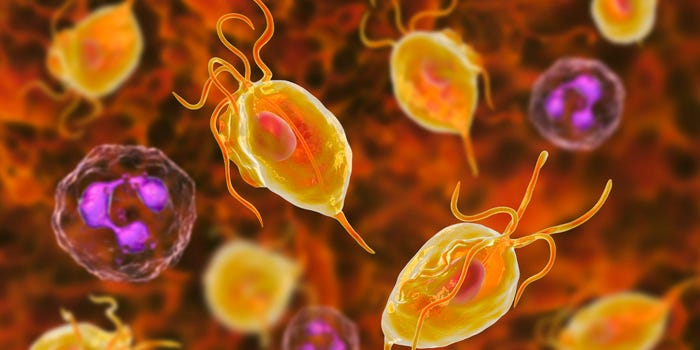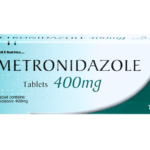How Long Does Metronidazole Take To Cure Trichomoniasis

What is trichomoniasis (trich)?
Trichomoniasis is the most common non-viral sexually transmitted disease (STD) in the world. Most people call the condition trich. Its name comes from the parasite Trichomonas vaginalis that causes the disease.
You may have trich and not know it, the infection rarely causes symptoms. Trich is contagious, which means you might unknowingly infect others through sexual contact. You may also hear STDs like trich referred to as sexually transmitted infections (STIs).
How common is trichomoniasis (trich)?
Trichomoniasis is the most common curable STD affecting both men and women in America. Approximately 3.7 million people have the disease.
Who might get trichomoniasis (trich)?
Trich affects all genders. Women (especially older women) are more likely than men to get the disease. Black women are more prone to the disease. Your risk for trich increases if you:
• Don’t use condoms while having sex.
• Have multiple sexual partners.
Is trichomoniasis (trich) contagious?
Yes, trich is very contagious. In addition to affecting the genitals, trich can also infect the anus, mouth and hands. Trichomoniasis, is highly curable if a person seeks treatment. However, only about 30% of people with trich experience symptoms, according to the Centers for Disease Control and Prevention (CDC).
What is Metronidazole?
Metronidazole is in a class of medications called nitroimidazole antimicrobials. It works by stopping the growth of bacteria. Metronidazole capsules and tablets are used to treat infections of the reproductive system, gastrointestinal (GI) tract, skin, heart, bone, joint, lung, blood, nervous system, and other areas of the body.
Metronidazole capsules and tablets are also used to treat sexually transmitted diseases (STDs). Metronidazole extended-release (long-acting) tablets are used to treat bacterial vaginosis (an infection caused by too much of certain types of harmful bacteria in the vagina) in women.
Metronidazole injection is used to treat certain skin, blood, bone, joint, gynecologic, and abdominal (stomach area) infections caused by bacteria. It is also used to treat endocarditis (infection of the heart lining and valves), meningitis (infection of the membranes that surround the brain and spinal cord), and certain respiratory infections, including pneumonia. Metronidazole injection is also to prevent infection when used before, during, and after colorectal surgery.
How Long Does Metronidazole Take To Cure Trichomoniasis?
Trichomoniasis is usually treated quickly and easily with antibiotics. Most people are prescribed an antibiotic like metronidazole which is very effective if taken correctly. You’ll usually have to take metronidazole twice a day, for 5 to 7 days. Sometimes this antibiotic can be prescribed in a single, larger dose.
Even though you might feel better after a few days of treatment, it’s best to finish the entire antibiotic regimen in order to fully resolve your infection. This can also help prevent antibiotic resistance. Don’t stop taking metronidazole early without first talking with your healthcare provider.
What side effects should I expect when using metronidazole?
Get emergency medical help if you have signs of an allergic reaction to metronidazole (hives, itching, warmth or tingling; fever, joint pain; dry mouth, dry vagina; stuffy nose, difficult breathing, swelling in your face or throat) or a severe skin reaction (fever, sore throat, burning eyes, skin pain, red or purple skin rash with blistering and peeling).
Call your doctor at once if you have:
• new or worsening symptoms of infection;
• painful or difficult urination;
• confusion;
• a light-headed feeling (like you might pass out); or
• blisters or ulcers in your mouth, red or swollen gums, trouble swallowing.
Stop taking the medicine and call your doctor right away if you have neurologic side effects (more likely to occur while taking metronidazole long term):
• numbness, tingling, or burning pain in your hands or feet;
• vision problems, pain behind your eyes, seeing flashes of light;
• muscle weakness, problems with speech or coordination;
• trouble speaking or understanding what is said to you;
• a seizure; or
• fever, neck stiffness, and increased sensitivity to light.
Metronidazole can cause life-threatening liver problems in people with Cockayne syndrome. If you have this condition, stop taking this medicine and contact your doctor if you have signs of liver failure–nausea, stomach pain (upper right side), dark urine, clay-colored stools, or jaundice (yellowing of the skin or eyes).
Side effects may be more likely in older adults.
Common metronidazole side effects may include:
• depression, trouble sleeping, feeling irritable;
• headache, dizziness, weakness;
• nausea, vomiting, loss of appetite, stomach pain;
• diarrhea, constipation;
• unpleasant metallic taste;
• rash, itching;
• vaginal itching or discharge, pain during sex;
• mouth sores; or
• swollen, red, or “hairy” tongue.
This is not a complete list of side effects and others may occur. Call your doctor for medical advice about side effects. You may report side effects to FDA at 1-800-FDA-1088.





